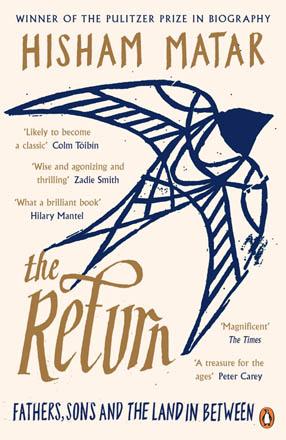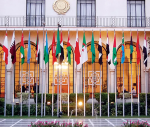You are here
Inner conflicts in the time of dictatorship
By Sally Bland - Jul 27,2014 - Last updated at Jul 27,2014
In the Country of Men
Hisham Matar
New York: Dial Press/Random House, 2008
Pp. 246
In this novel, Hisham Matar portrays the impact of state and social repression on the human psyche, interpersonal relations and family dynamics in particular, through the eyes of a young boy. As the story makes clear, arbitrarily exercised power does not necessarily unite people to oppose it, but sometimes divides them, each trying to protect themselves and their loved ones. It is just as likely that one betrayal will lead to another as that it will create solidarity among victims. The sacrifice of friendship and principles appears as a bi-product of dictatorship, just as cruel as torture and killing, for it breaks down trust and people’s sense of self.
Most poignantly, the novel chronicles the conflicted feelings of Suleiman, the nine-year-old storyteller, as Libya’s intelligence service cracks down on his neighbours, friends and eventually his father in 1979, as opposition to the Qadhafi regime’s excesses peaks among students and democratic intellectuals.
Matar is not content to simply expose the cruelty of the regime; he has a keen eye for social problems and injustices of all kinds. As the story opens, Suleiman is conflicted by his experience of the adult world. His mother’s alcoholism and his father’s aloofness and frequent absences “on business,” confuse and sadden him. Like most children, he loves his mother and father, and wants to be together with them both. Yet, when his father is away, his mother tells and retells the story of how she was forced into marriage against her wishes, and he often witnesses examples of his parents’ incompatibility. He is in the untenable position of imagining himself saving her from a forced marriage all the while that he is a product of that union. Attempts to shield him from knowledge of his father’s political activities inevitably make him realise that his parents aren’t telling him the truth. That they are doing this for his own protection makes it no less irksome for him. Suleiman is quite intelligent and wants to be treated as a full partner in the family.
Matar’s writing is truly masterful as he reveals each of these three main character’s point-of-view even though the story is completely told in Suleiman’s voice. The reader sympathises with each of them in turn, gets angry at each, sometime laughs at or with each. They are real, a mix of virtues, faults and contradictions. Putting politics aside, Matar has a great and complex human story to tell. Suleiman narrates his dreams, fantasies and memories, his perceptions of the natural and human world, with compelling innocence. But this innocence is increasingly eroded as the novel progresses and he struggles to make sense of the opaque adult world that lacks a child’s logical clarity. The reader will sometimes delight in Suleiman’s interpretation of adult behaviour, at other times be saddened by what he has to face, but above all be touched by his boundless love for his mother.
The book title, “In the Country of Men,” is emblematic of the novel’s complexity, for “men” has multiple connotations. Most often it refers to the strongmen of the regime, but it also refers to the “High Council” — the mother’s name for the gathering of the men in her family that decided to marry her off at the age of fourteen after she was seen in the company of a young man. The extent to which these male qualities — political repression and social control — overlap is never completely spelled out, and the political opposition is also male. Suleiman too wants to be a man. Which version of manhood will he choose? Which definition of bravery — to oppose injustice or to keep silent in order to protect your family?
“In the Country of Men” has received much critical acclaim, especially as being a first novel. Indeed, it exhibits all the maturity and complexity of a seasoned writer. As a dissection of human emotions and behaviour under difficult circumstances, where there are no good choices to be made, it is unmatched.
Sally Bland
Related Articles
The Return: Father, sons and the land in betweenHisham MatarUK: Penguin Books, 2017Pp.
Israeli occupation authorities on Tuesday adjourned anew the trial of the youngest Jordanian prisoner in its jails till March 16, family and activists said.
















